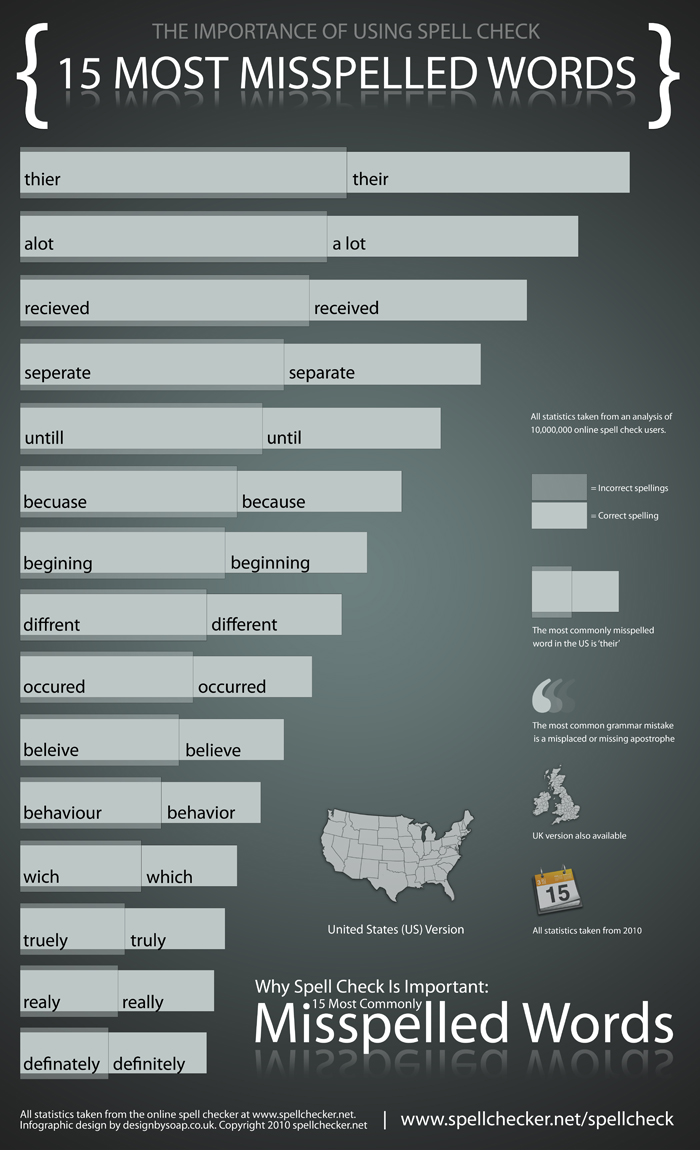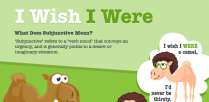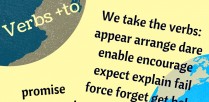The English language is old enough to make us wonder where do all its spelling and grammar rules come from, isn’t it? Nowadays we can easily study some particular points of the language history, but we do not always have enough time to do it.
The most misspelled words in English are not pulled from college term papers; they are in everyday writing. While reading through this list of the 15 most commonly misspelled words (when your nose begins to bleed, and your eye starts to twitch), remember that there is an easy solution: spell check.
Most who have spell check consider it a necessity, as even the most grizzled veteran writers encounter potholes. A university professor once remarked, “I was writing along, quick as you please, and I hit a wall in the form of the word “rabbit.” My mind went blank…was it one ‘B’ and two ‘Ts’? Two ‘Bs’ and one ‘T’? It was odd–I can write ‘cognitive neuropsychiatry’, but I get stuck on ‘rabbit’? Thank goodness for spell check.”
You can easily download full-size poster version of the infographic here.
After you have double-checked your texts in our spellchecker, let’s learn the rules of some of the correct writings from the list.
The first standard of the correct spelling is to know the right pronunciation and the reading. If you are the ESL student, this point should be familiar to you as you had to learn the alphabet with its different sounds.
- The example “Receive” and “Believe” are all about “E” before “I” except after “C.”
- The changes made in the pronouns don’t follow the “E” before “I” except after “C” rule as they have their own origin of spelling.
- “Because” reminds us the Etymology article on grammar.net page. It comes from bi cause: 1275-1325; Middle English bi cause by cause: from Latin bis + causa. This word has the meaning “by the reason.”
- “Begin” and “Beginning” and other short or monosyllable verbs ask for double consonant before “ing.”
“Occur” and its “Occurred” form also follow the similar rule for adding “ed” ending. Don’t forget to ensure double “C” using the root word as “occasion.” - “Different” and “Definitely” can be quickly checked by the root words too: “to differ”, and “definite.”
- “Behaviour” and “Behavior” are both correct, but in two different countries. The first is available in the UK, but the second is in the US. British variant suggests going to some history lessons.
- “True” loses its “e” while adding “ly” ending to get an adverb “Truly.”
Meanwhile, if we had “L” in the end as in “real” word we double “L”.
For instance: “Alotisn’t a word, sorry.” “Oh, really?” - The last point for you to study is the list of the “Wh” questions words: who, whose, what, which, when, why, where.
As this infographic proves, the most commonly misspelled words are the ones we use every single day. By taking a minute and spell checking your work, you can avoid these blunders and, in doing so, appear more professional in a business email, come off as more caring and considerate in a birthday card (because you took the time to perfect and polish your writing), and simply be viewed by the world at large as a more educated, conscientious individual. Spelling matters in real life, not just in English class!
I hope that I gave you enough information to study today, and to scratch your head while looking through the language history.







